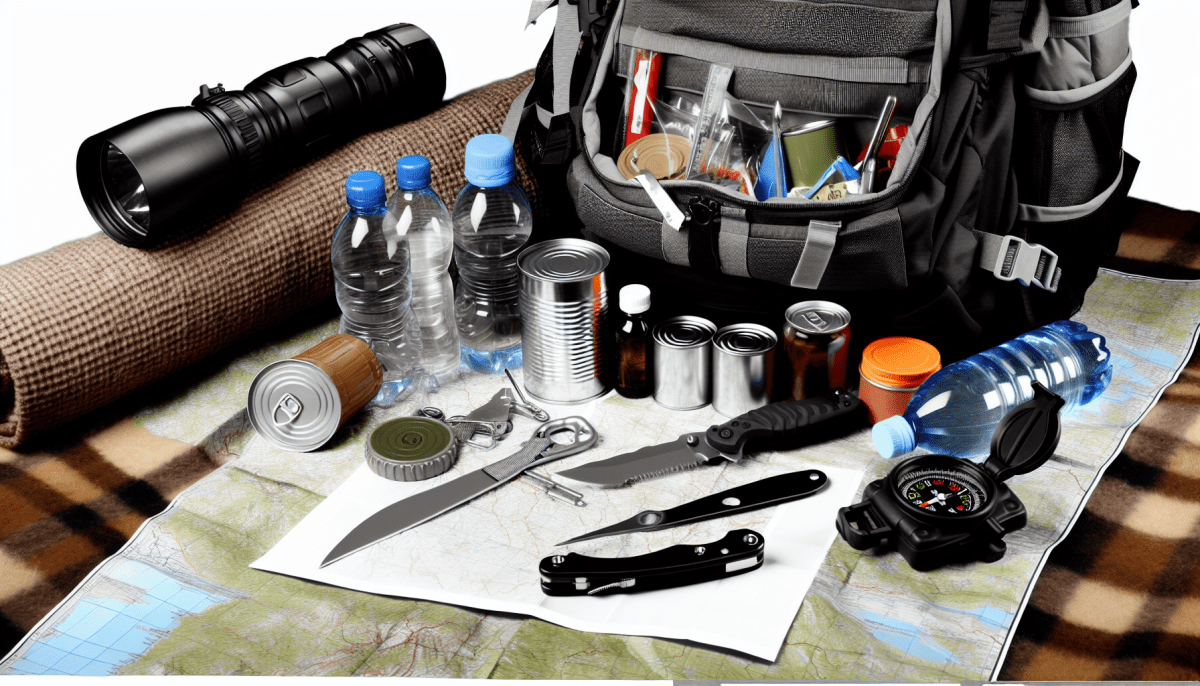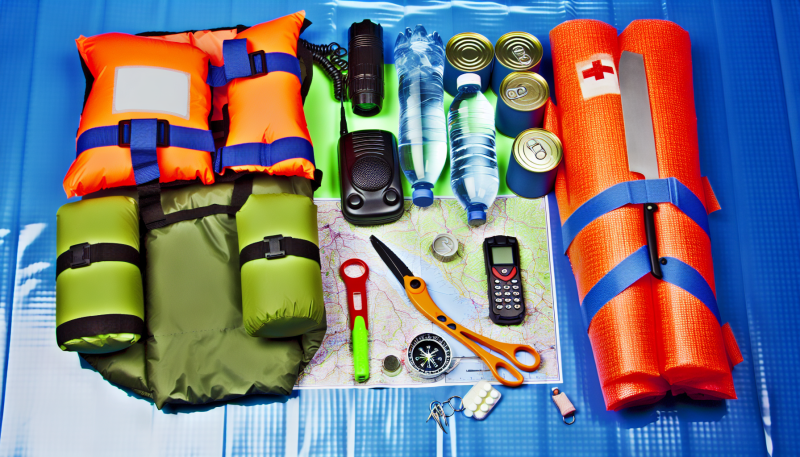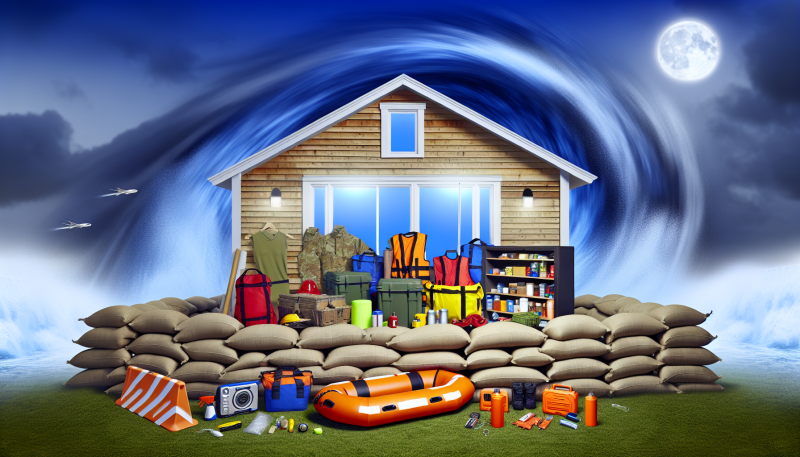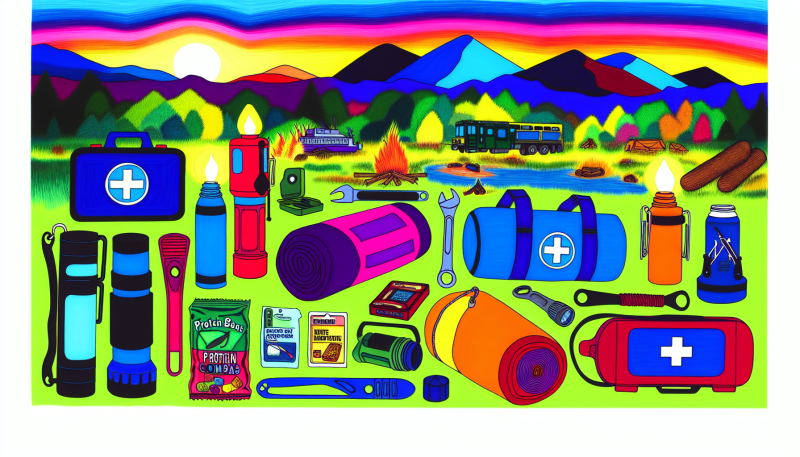When preparing for emergencies or uncertain situations, ensuring a reliable source of food and water is paramount. These essentials should be the cornerstone of any prepper supplies kit. Start with non-perishable food items that are nutrient-dense and have a long shelf life. Canned goods, dried beans, rice, and freeze-dried meals are great options. Don’t forget to include items that your family enjoys; if you don’t like the food, you won’t want to eat it when the time comes.
In addition to food, clean water is crucial for survival. Each person requires at least one gallon of water per day, so it's vital to store an adequate supply. Consider investing in water purification tablets or filters, which can help ensure your water is safe to drink. It’s also a good idea to have containers for collecting rainwater or a method for purifying water from natural sources. Remember to rotate your water supply regularly to keep it fresh.
To facilitate cooking and food preparation, a portable camping stove or a fire starter can be incredibly helpful. Make sure to store a supply of fuel or wood for your cooking needs. Cooking supplies, such as pots, utensils, and a manual can opener, should also be included in your kit. These items allow you to prepare meals without relying on electricity or gas, making them essential for self-sufficiency in emergencies.
Don't overlook the importance of snacks! High-energy snacks like nuts, energy bars, and dried fruits can provide quick sustenance when you need it most. These items are easy to pack and can boost your morale during challenging times. Ensuring your food and water essentials are well-rounded and satisfying can make a significant difference in maintaining your strength and spirit during emergencies.
First Aid and Medical Supplies
Next, gather essential first aid supplies such as adhesive bandages, gauze pads, sterile dressings, and adhesive tape. These items are vital for treating cuts, scrapes, and other wounds. Additionally, include antiseptic wipes and antibiotic ointment to prevent infections. Don't forget pain relievers like ibuprofen or acetaminophen, which can help ease discomfort during challenging times.
In more serious situations, you may need extra items such as a digital thermometer, tweezers, scissors, and a splint for fractures. If anyone in your group has chronic medical conditions, make sure to stock their necessary medications and any equipment, like inhalers or epi-pens. It's wise to keep these supplies in a waterproof container to protect them from the elements when you're on the go.
Lastly, consider adding items like a first aid emergency blanket, which can help with heat retention, and a nasal airway for those who may experience breathing difficulties. Remember that practicing basic first aid skills is just as important as having the supplies. Join a first aid or CPR class to familiarize yourself with these techniques, ensuring you’re prepared for any situation.
Tools for Everyday Tasks
In every prepper's supplies kit, having the right tools can make all the difference for tackling everyday tasks. These tools not only assist in daily chores but can also become lifesavers in emergencies. Below are some essential tools every prepper should consider adding to their supplies.
A good multi-tool is a must-have in any kit. With a combination of pliers, knives, screwdrivers, and scissors, it’s like having a toolbox in your pocket. Multi-tools are perfect for quick fixes around the house or when you're out in the field. Whether you need to cut rope, open a can, or make adjustments to gear, a sturdy multi-tool simplifies various tasks and minimizes the need to carry multiple individual tools.
Another invaluable asset is a portable water filter. Access to clean water is crucial during emergencies, and water filters allow you to purify tap water or water from natural sources. Invest in a high-quality filter that can remove harmful pathogens and contaminants, ensuring your family stays hydrated and healthy no matter the situation. Coupled with a collapsible water container, you can gather and purify large quantities of water with ease.
Don't overlook the importance of a reliable flashlight. Whether for everyday power outages or emergency situations, a bright and durable flashlight provides essential visibility in the dark. Opt for one with adjustable brightness levels and a long battery life. Don't forget to invest in extra batteries or consider a rechargeable model to ensure you’re always prepared.
Emergency Communication Devices
Two-way radios or walkie-talkies are excellent options for group communication. They allow you to stay in touch with family and friends within a certain range, making it easier to coordinate plans during emergencies. Make sure to choose models that offer a long battery life and multiple channels to reduce interference. It’s also a good idea to practice using these devices beforehand, so everyone knows how to operate them effectively.
Another valuable device to have is a satellite phone. Unlike regular cell phones, satellite phones connect directly to satellites, allowing you to communicate even in remote areas where cell service is unavailable. While they can be more expensive, having a satellite phone can offer peace of mind, especially if you live in a region prone to natural disasters.
Don’t forget about personal emergency beacons. These compact devices, such as Personal Locator Beacons (PLBs) or Emergency Position Indicating Radio Beacons (EPIRBs), can send your location to rescue teams in case of distress. They are perfect for outdoor adventurers and those who live in more isolated areas. With just the push of a button, you can alert someone to your situation and receive help.



